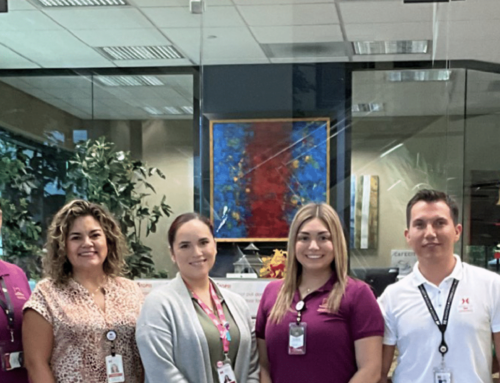$2.1 Million in Savings with Improved Care and Quality
Published on March 28, 2019

It’s hard to argue with $2.1 million in savings.
In the first two years that ACO Partner connected to and began receiving data from Contexture, the physician-centric organization saw $2.1 million in savings — after its service costs were subtracted — when managing its patient population of approximately 58,000. Although ACO is in the name, ACO Partner is not an ACO. It can be described as a services organization that supports providers with value-based healthcare. Currently, ACO Partner has a network of over 1,100 physicians and advanced practitioners throughout Arizona. 
A joint venture of Trinnovate Ventures and Change Healthcare, ACO Partner aims to help independent providers stay independent by offering services to assist primarily small practices meet its benchmarks with improved quality and efficiency alongside enhanced patient experience and satisfaction. It helps providers meet these goals by offering care coordination services as well as assistance with data analytics and technology to help drive the savings for successful participation in value-based contracts. Blue Cross Blue Shield of Arizona is ACO Partner’s first customer.
ACO Partner receives daily batch Alerts from Arizona’s HIE on all registered patients. Every day, the analytics team takes the Contexture information, along with other analytics, and creates an internal report that provides assignments to specific care coordinators who will reach out to patients. ACO Partner even began integrating daily HIE batch Alerts into its new care coordination software system.
The key, according to Karen Bomersbach, Vice President of Operations and Finance, is to provide services and outreach to patients on behalf of providers so you’re not viewed as an outside or third party but as an integral part of the physician’s practice. It’s also important to have good data and specific targets for improving care coordination. “A lot of payers have gone the path of providing a PMPM, or per member/per month, incentive to physicians as a value-based incentive, but this model delivers direct resources to the providers in the form of a care coordination team and data analytics, enabling the physicians to improve the patient experience, improve quality, improve delivery of care efficiencies and successfully participate in their value-based contracts.”
ACO Partner provides health analytics for patient populations and risk scoring on individual patients to develop care plans used alongside data from the Arizona HIE to engage with patients on behalf of practices. The cost of these services is spread across all served practices, which is vital in assisting independent practices, according to Dr. Andrew Carroll, Chief Medical Officer. Dr. Carroll’s perspective comes from his own experience in private practice. “I tried to buy and use population health software, but the return on investment was negative,” he said. Independent physicians want to be experts at value-based healthcare, but they need assistance. What we have been able to do on behalf of physicians is leverage risk scoring, risk stratification and provide a dedicated team of care coordinators who engage with the patient.

Andrew JP Carroll, MD, FAAFP, Chief Medical Officer, ACO Partners
Dr. Carroll cites one recent example of a patient who was going to a hospital emergency department (ED) two to three times a week. ACO Partner was able to engage the patient, directing them to a lower cost urgent care center when appropriate and reducing the patient’s overall need for urgent treatment. This is a great example of providing a patient “the right care in the right place at the right time,” according to Dr. Carroll. Most importantly, the patients really appreciate it, Dr. Carroll added. ACO Partner has a myriad of examples when it comes to patients avoiding tertiary care with the assistance of care coordination from ACO Partner.
The success of ACO Partner’s outreach is integrating quality information into the workflow of the care coordination team, according to Christina Cadaret, Executive Director of Care Coordination. There are different workflows for patients discharged from hospital EDs and inpatients who are discharged. The care coordination team uses scheduled targets for following up with patients, relying on the Arizona HIE portal to pull discharge summaries that they forward to practices via encrypted messaging. The follow-up outreach aims to ensure that patients understand discharge instructions and their medications in order to avoid readmissions or return trips to a hospital ED. This assists practices in providing a transitional care visit, which studies prove reduces readmissions, morbidity and mortality.
The information from Contexture is a critical part of ACO Partner’s work and has proven to be highly valued among team members. In the past, the type of information that’s received from Arizona’s HIE was only available from claims data, which is usually 45 or more days old, according to Karen Bomersbach. The value of Contexture’s data, she said, is that it’s up-to-date and provides excellent statewide coverage since most hospitals in the state are supplying data to the HIE.
ACO Partner is actively talking with other payers about providing similar care coordination and analytics services since its model can be transferred to other health plans and groups of providers. With data and services from Contexture, ACO Partner offers an excellent model for helping independent providers improve care and quality while also reducing costs.
Independent physicians want to be experts at value-based healthcare, but they need assistance. What we have been able to do on behalf of physicians is leverage risk scoring, risk stratification and provide a dedicated team of care coordinators who engage with the patient.
- Andrew JP Carroll, MD, FAAFP, Chief Medical Officer, ACO Partners





